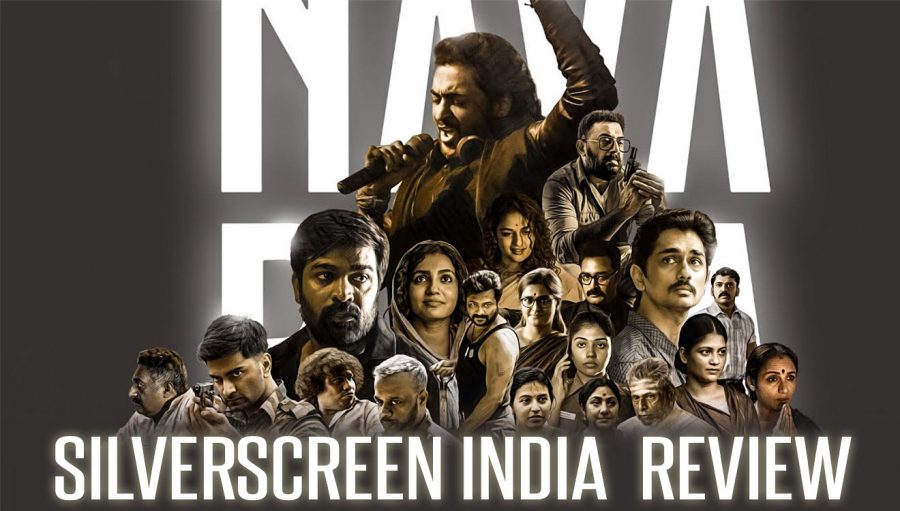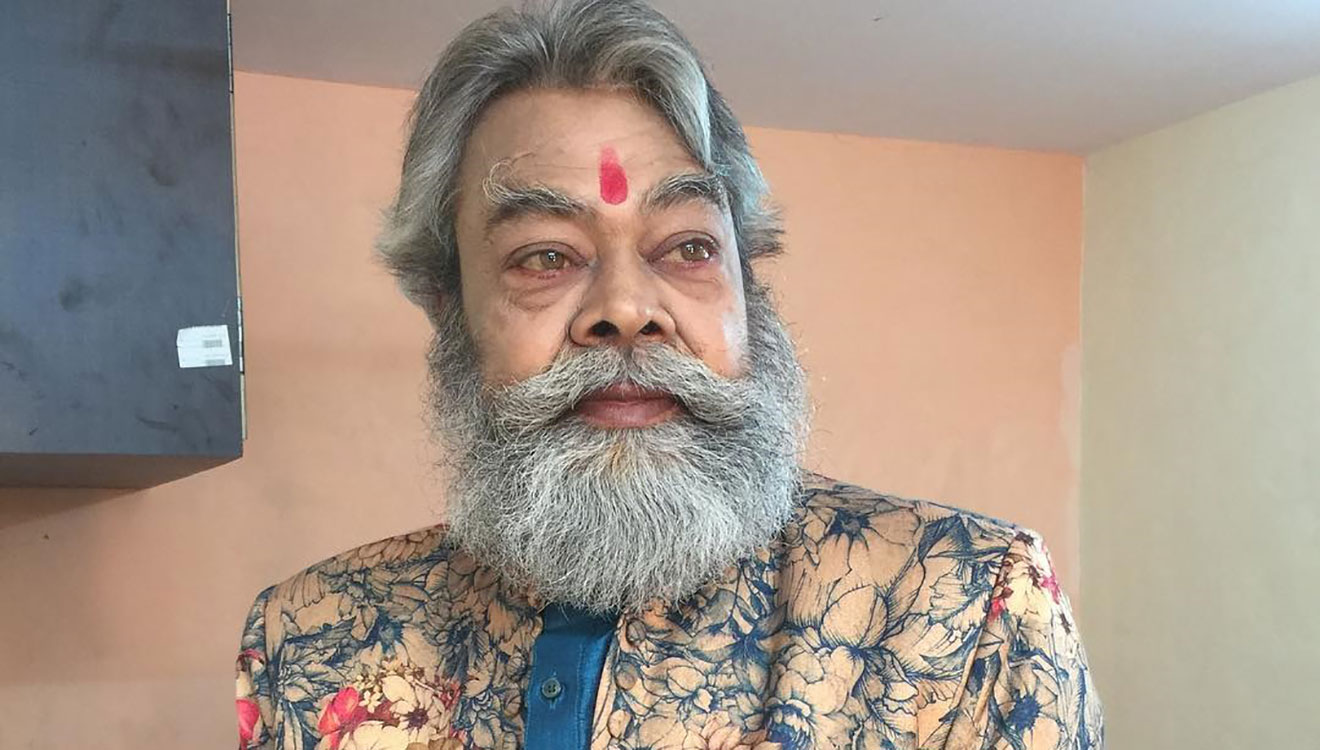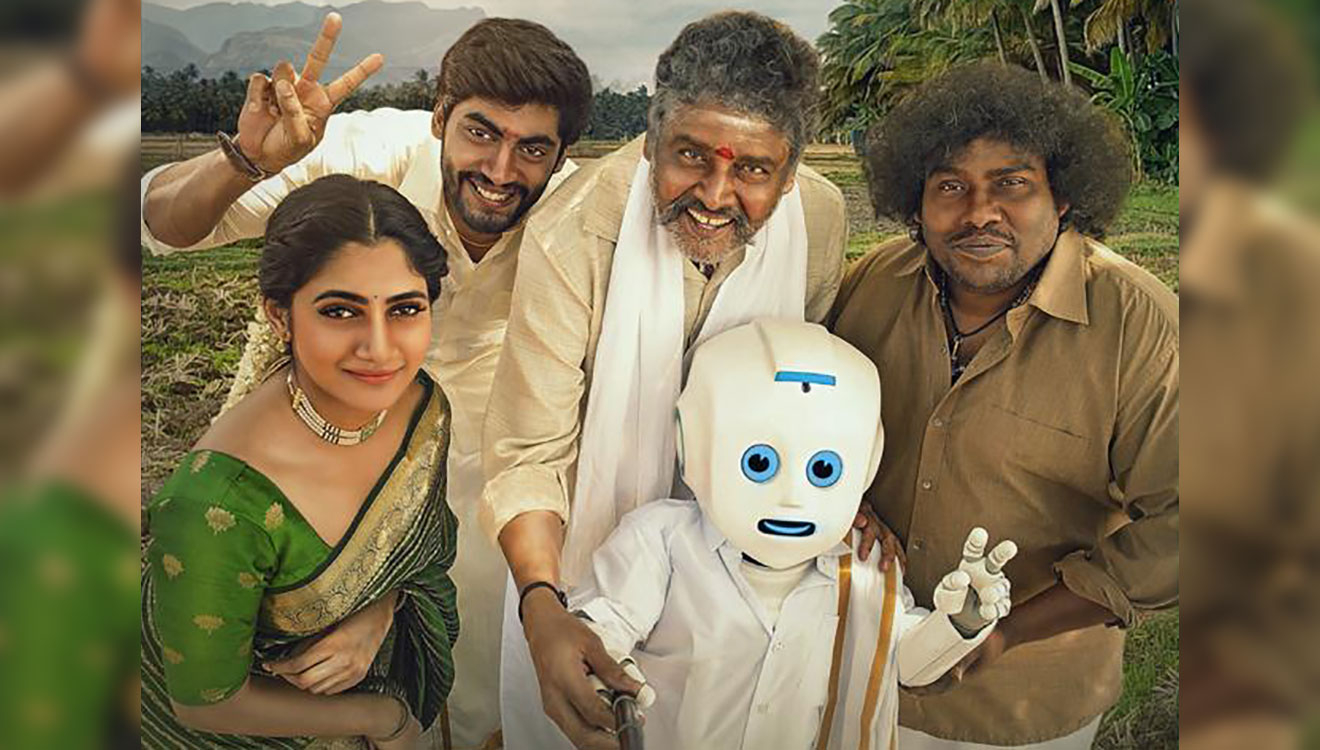If Navarasa has achieved something in the past couple of weeks – the obvious theatricality of its trailer seeming to introduce an elaborate recital than new cinema – it is turning Netflix into the Music Academy of streaming platforms. A weekend event. An old theme subject to periodic regurgitations in newer forms. Celebrated performers. Over the top advertising. You could literally smell the musty gallery seating, the feeling that Navarasa’s trailer unfailingly evokes.
Navarasa the anthology though, contrary to expectations set by the prelude, is no exercise in theatre. It’s proper cinema. Popular directors, actors, composers. Familiar settings, props, plots. Familiar faces that restrict themselves to familiar emotions. The ones that skirt these boundaries are new filmmakers and actors; tellers who neither have a storied career nor a long list of creations attributed to them on their Wiki pages.
Edhiri: Karuna, Compassion
A distinctly upper-class setting. Revathi as Savithri, the bejewelled matriarch, tutors the help’s kids, consoles their mother, even as she remains silent in a domestic conspiracy hatched by her son against his fiancée. It’s deliberately low-key this exchange – as is every dialogue and scene in the short. Vijay Sethupathi as Dheena arrives, making notorious small talk with his eyes, a direct transplant from 96. Romance and murderous instinct seem to evoke similar expressions in him – a silent gaze, full of ripe meaning, only you don’t know whether it’s going to be a sweet-nothing whispered in the ear or an axe to the head. Deadly. Prakash Raj, as Revathi’s husband, doesn’t seem to live and breathe among the props as Revathi does. His presence is vastly diminished and even his banter appears without heart.
You could argue that this subdued quality is what the short is going for – careful sophistication on the surface, something sinister lurking underneath – but the dreary dialogues will ensure you don’t. Edhukku kanna kasakkikittu nikkare, is the milder line, trotted out in all its moldy, mildewy glory. But the worst offence of Edhiri, directed by Bejoy Nambiar, is trying to create a false equivalence between emotional cruelty and outright physical harm, giving neither its due.
Summer of 92: Haasya, Laughter
Yogi Babu is bang in the middle of the film – he’s the plot’s protagonist, the villain, the comedian, the spectacle that Summer of 92 wants you to gawp at. But it doesn’t really want you to gawp at him as you would at a protagonist with heroic attributes, or a villain capable of fearful cruelty. It doesn’t even let you laugh with him as a comedian, for here, Babu as Velusamy is the object of comedy. There’s no laughter even as the film urges and prods and hurls unseemly slights at Babu; it’s as if the actor himself had realised the mundanity of the script – he acts, he doesn’t perform.
Said to be based on the true story of a small-town legislator in Kerala, the film follows Babu as he’s invited back to his school to be felicitated as a famous alumnus. Only, his time in school wasn’t as rosy as the welcome he receives now. Featuring YG Mahendra, Nedumudi Venu, and others as teachers in the school, you do briefly wonder if this is an elaborate caricature about a certain institution – you know, the tale involving a famous composer, the school he graduated from, and a rather interesting felicitation ceremony years later. That way, this Priyadarshan directorial does seem fun.
Project Agni: Adhbuta, Wonder
The first of the nine films that holds interest: almost everyone and their neighbour is a sucker for sci-fi. This pearl of wisdom was known to writers and filmmakers since time immemorial – and it is this wisdom that director Karthick Naren draws on. He designs a setting that makes you mildly curious. But he also doesn’t really deviate a lot from age-old science fiction rules. There’s the Vonnegut-esque theory about time and the nature of its existence, a mad scientist who’d like to plumb the depths of both time and the human mind. Naren, though, indulges his FOMO by touching upon several contentious themes – astrology, extra-terrestrial life, alternate realities – groups them all together for a final Tamil pulp fiction-style showdown. But the thing is, what Naren conjures seems slightly plausible thanks to Arvind Swami, his over-sized frames, and the you-are-not-getting-out-of-here-unless-you-agree-with-me deliveries.
Payasam: Bheebatsa, Disgust
Because Tamil writers are just splendid in their representations, Payasam’s tale seems to have told itself on screen. Written by Thi Janakiraman, and located in and amongst people that the writer seems to know intimately, Payasam draws you within its tale of messy family dynamics fuelled by envy and hatred. Set in a Tamil Brahmin household in the 60s, with all the socio-cultural trappings of the time, Payasam happens at a wedding – Delhi Ganesh plays uncle to the bride’s father. Envious of the fortune that seems to have found his nephew, Ganesh as the chithappa reacts violently to the hum and the bustle that precede the wedding. Janakiraman presents a stark portrayal of a man whose life is devoid of all pleasure, and who is so embittered at heart that he’d consider indulging his darkest whims to sabotage his nephew’s happiness. Director Vasanth Sai depicts in careful measure the interplay of relationships (and conflicting emotions) at close quarters. Aditi Balan, as Delhi Ganesh’s widowed daughter, is seen embodying the label that the short is filed under.
Peace: Shanthi, Peace
A fan of the theatre that punctuation so often brings to text, the last frame of the short is perhaps the most memorable in Peace. The frame seems to pose a question about the rasa that the film is to represent rather than an absolute declaration of emotion as with the others.
Karthik Subbaraj directs this tale set amidst the Eelam war. He has his Man Friday with him – Bobby Simha in a starring role as Nilavan. Simha and Gautham Menon are LTTE warriors anticipating an impending attack by the army. Enter a boy who wants his little brother rescued from across the frontlines where Nilavan and team are located. Moved by the boy’s tale, and also responding to the trauma from his past, Nilavan carefully makes his way past the enemy lines to bring the brother back home. The reveal and the subsequent ending of the film though, are underwhelming.
Roudhram: Rudra, Anger
Boy, can Arvind Swami direct. In Roudhram, he doesn’t present earth-shattering or never-heard-before convictions and beliefs. And yet, there’s a lived-in familiar quality to the filmmaking that you instantly take to the landscape it presents. Roudhram opens with a wealthy man harassing a small-time shopkeeper to repay his loans. Two minutes later, he’s dealt a fatal blow to the head by a teen who’s fresh off football practice. You see his new shoes. You then see the teen in the police station. His tale is narrated in flashbacks.
A penurious family, a mother who works as a help, a son and daughter in school – small, simple pleasures if and when they arrive. Dark flashes of temper. A household that is content when it can afford to be. Swami is convincing in his portrayal of the mother who struggles to accommodate the hopes and wishes of her children, the son who wants to relieve his mother of her misery, and the daughter who is gripped by fear of living the same life as her mother.
The best part? The director doesn’t try to resolve the film’s conflicts – perhaps with the intimate knowledge that some remain for life.
Inmai: Bhayaanka, Fear
In this Rathindran R Prasad directorial, a young Muslim woman (Parvathy Thiruvothu) is at the centre of all the drama. We see plush living conditions. Glassy pools mimicking floor tiles in the living room. Expensive artwork that needs to be explained to be understood. And, a lone woman – Waheeda – who opens the door to a charming stranger (Siddharth). We learn the story in flashbacks through the stranger who calls himself Farookh. Waheeda has a past as everyone does, and the past has now come to haunt her, as it sometimes does. There’s a brief flash of fear as the stranger doesn’t seem to be who he is, but it doesn’t linger. The slow, creeping quality of fear that Inmai aims for doesn’t last long – Farookh doesn’t inspire fear even as it flickers in Waheeda’s eyes. It breaks the spell.
Thunintha Pin: Veera, Courage
Sarjun KM presents the tale of a young solider on the frontlines fighting Naxals. Atharvaa as Vetri leaves behind a pregnant wife on his first posting to a Naxal region. He apprehends one, and the film follows Vetri and Dummy Cat (Kishore) as they travel through the forest to have the latter handed over to the army. The conversations between them, meant to sound wary and provocative, come across as dull and manufactured. Kishore as a Naxal leader is shown to have an upper hand in the game they play even as Vetri struggles to retain his composure. A lacklustre short that has you rooting for the Naxal – and that too, with significant effort.
Guitar Kambi Mele Nindru: Shringara, Love
Gautham Menon’s Guitar Kambi Mele Nindru is as outlandish as its title. In one of the many romances in Tamil cinema that fail to connect, Suriya as Kamal, with a ghastly hairdo, is a brilliant composer in search of greener pastures – he decides to go to London to pursue music when he meets the beautiful Pragya Martin (as Nethra). She’s the singer to Suriya’s composer – and just like that, they fall in step, right down to their thoughts.
Recommended
In a rather strange, Freudian confession, Suriya attributes the attraction he feels towards Nethra to her embodying the qualities of his mother. Apparently, you “fall hook, line and sinker” for a girl if she is anything like your mother. While the discretionary powers on this line remain with the men, it’s one of the many questionable dialogues that the short throws at you. Also, is there anyone that has said ‘let’s have a go at each other’ to their lover and lived to tell the tale?
*****
The Navarasa review is a Silverscreen original article. It was not paid for or commissioned by anyone associated with the movie. Silverscreen.in and its writers do not have any commercial relationship with movies that are reviewed on the site.



